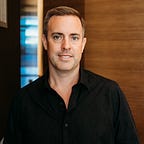Approaching 1,000 Mental Health Startups in 2020
I nearly died during the summer of 2018 by self-harm, addiction and unmanageable manic episodes. I had reached the end of my rope with addiction, and bipolar disorder. My family found me in a hotel room in Las Vegas on a random Monday afternoon that summer, and somehow, they got me to an addiction treatment center which ended up saving my life.
As any entrepreneur would do, I quickly wondered, “Who else has this problem, and how big is it?” As it turns out, the problem is catastrophic:
- 1 in 5 U.S. adults experience mental illness each year
- 1 in 25 U.S. adults experience serious mental illness each year
- 1 in 6 U.S. youth aged 6 to 17 experiences a mental health disorder each year
- 300 million people globally suffer from depression and anxiety annually according to the World Health Organization
- Depression is the leading cause of disability worldwide
- Suicide is the second leading cause of death among people aged 10 to 34
No Dedicated Capital for Mental Health Startups
There is very little dedicated capital for early-stage mental health- and addiction-related startups. There is no shortage of angel investors, but there are only a few digital health funds that invest in mental health startups, but certainly not their main focus. However, many of those heath-focused funds have grown in scale in recent…
